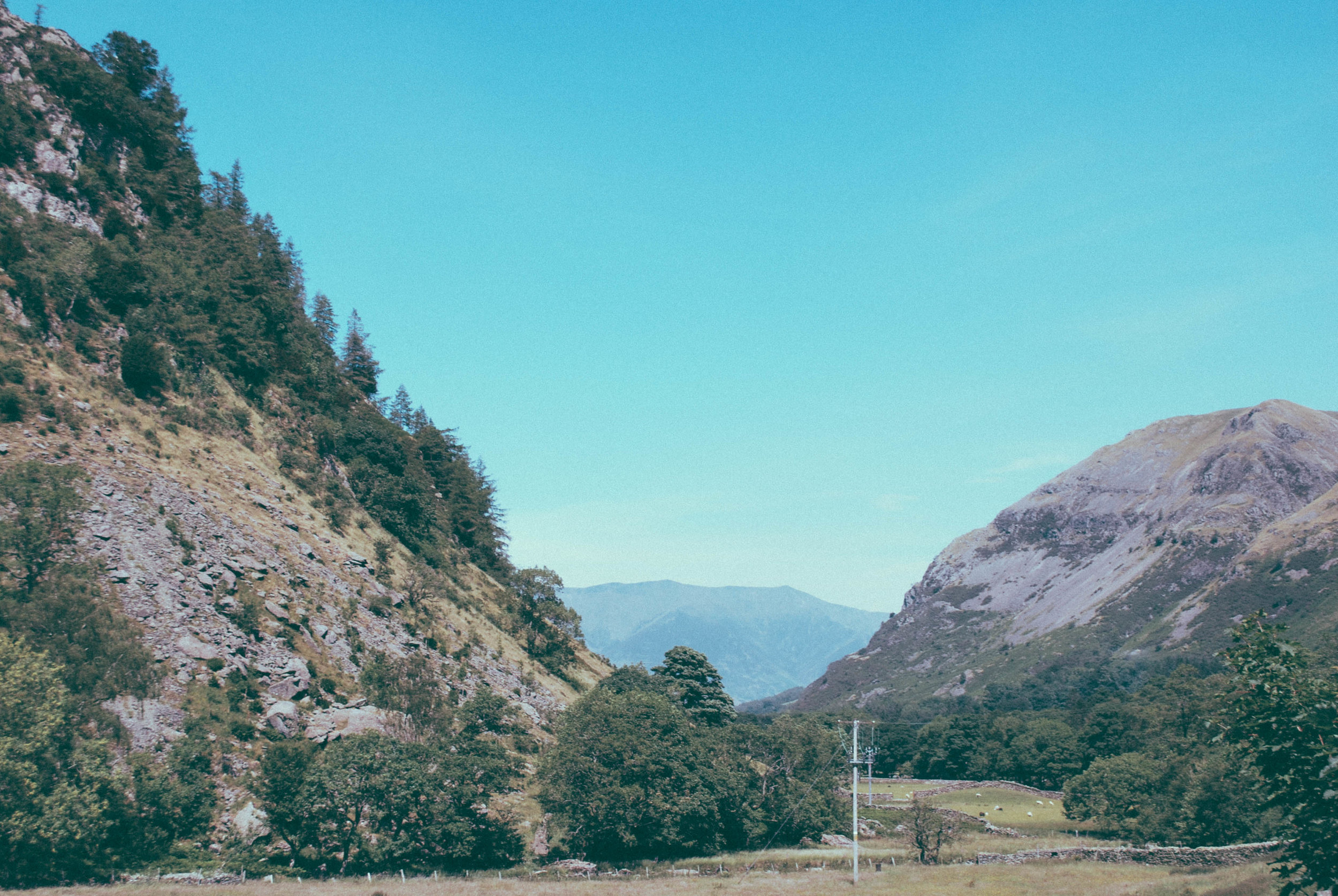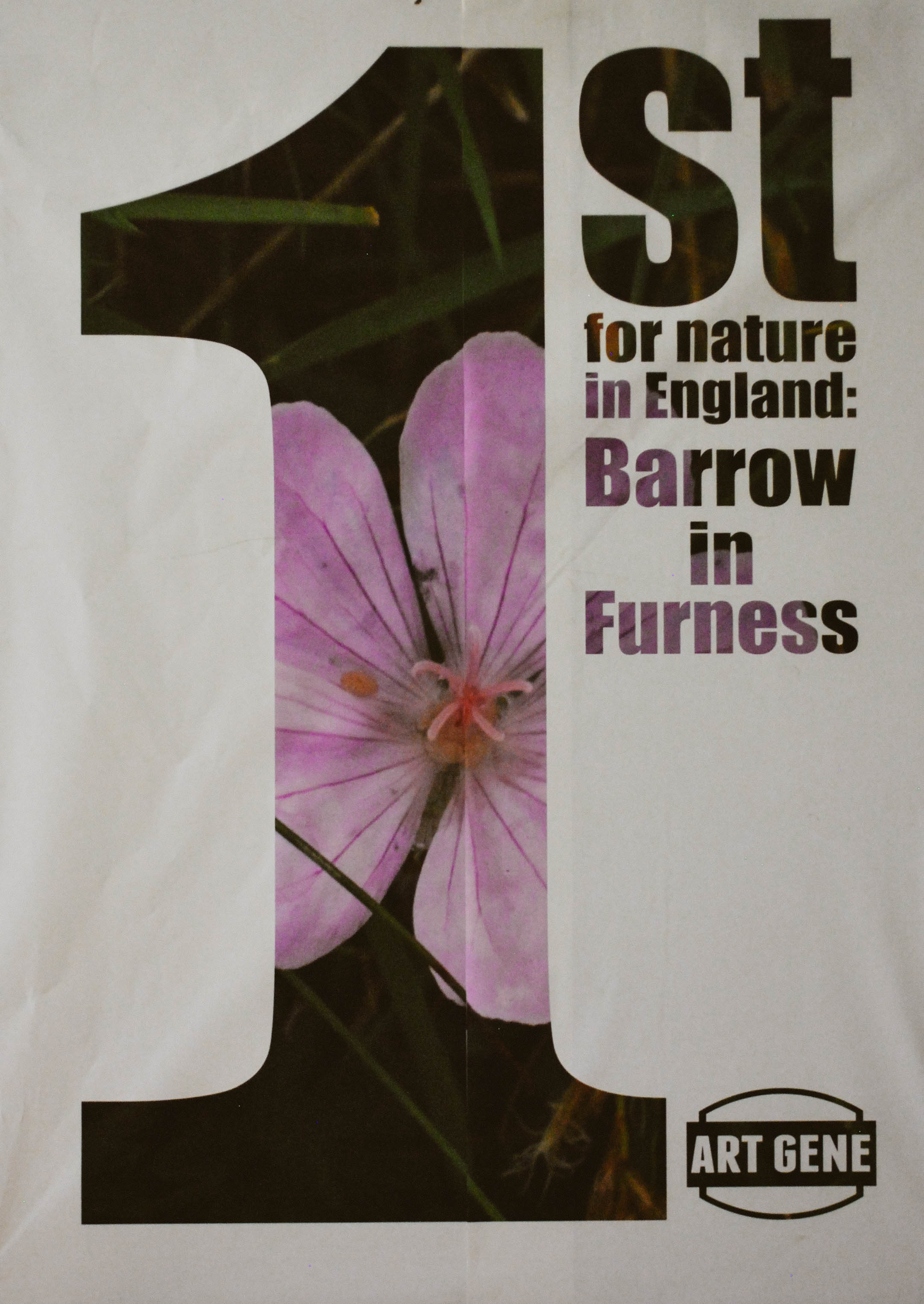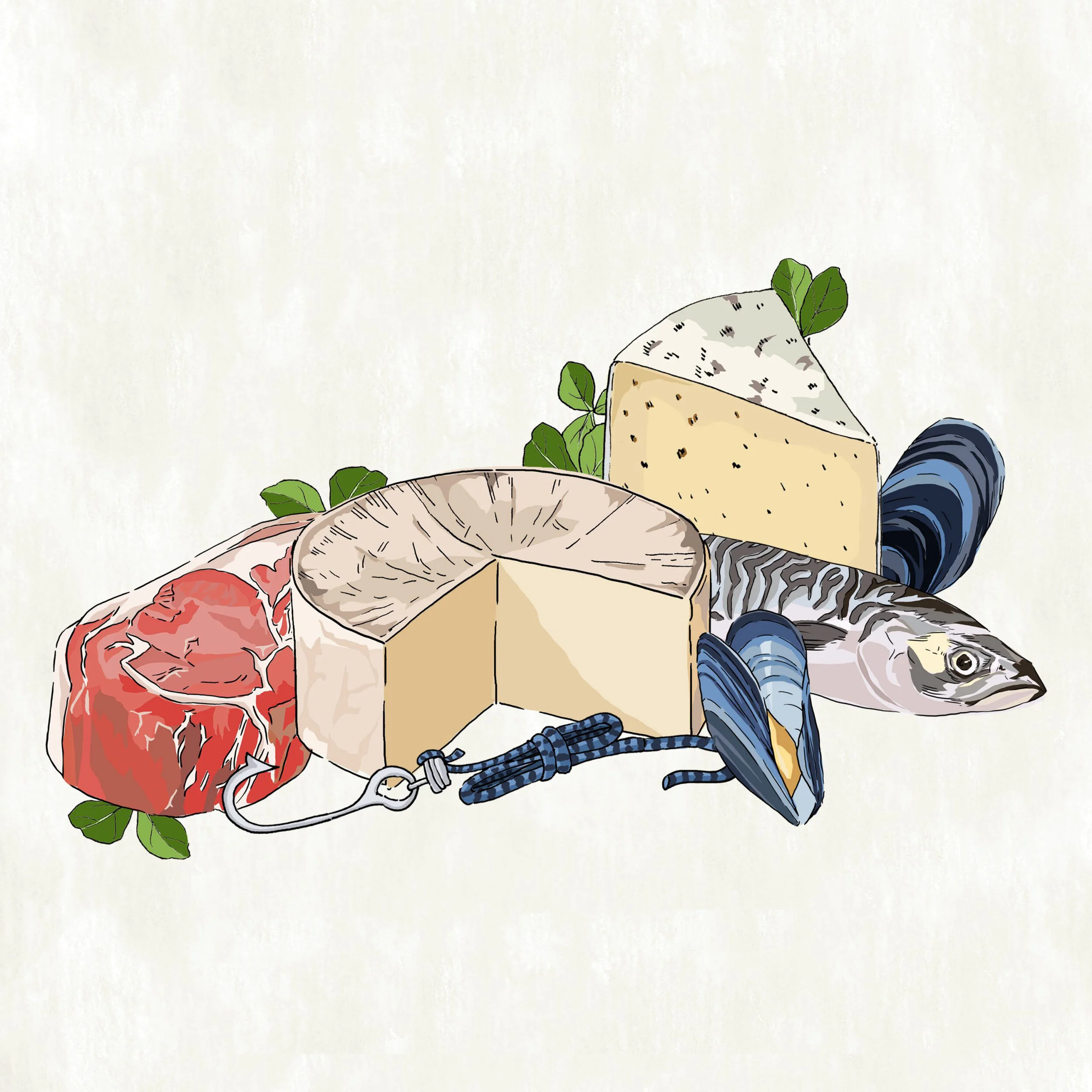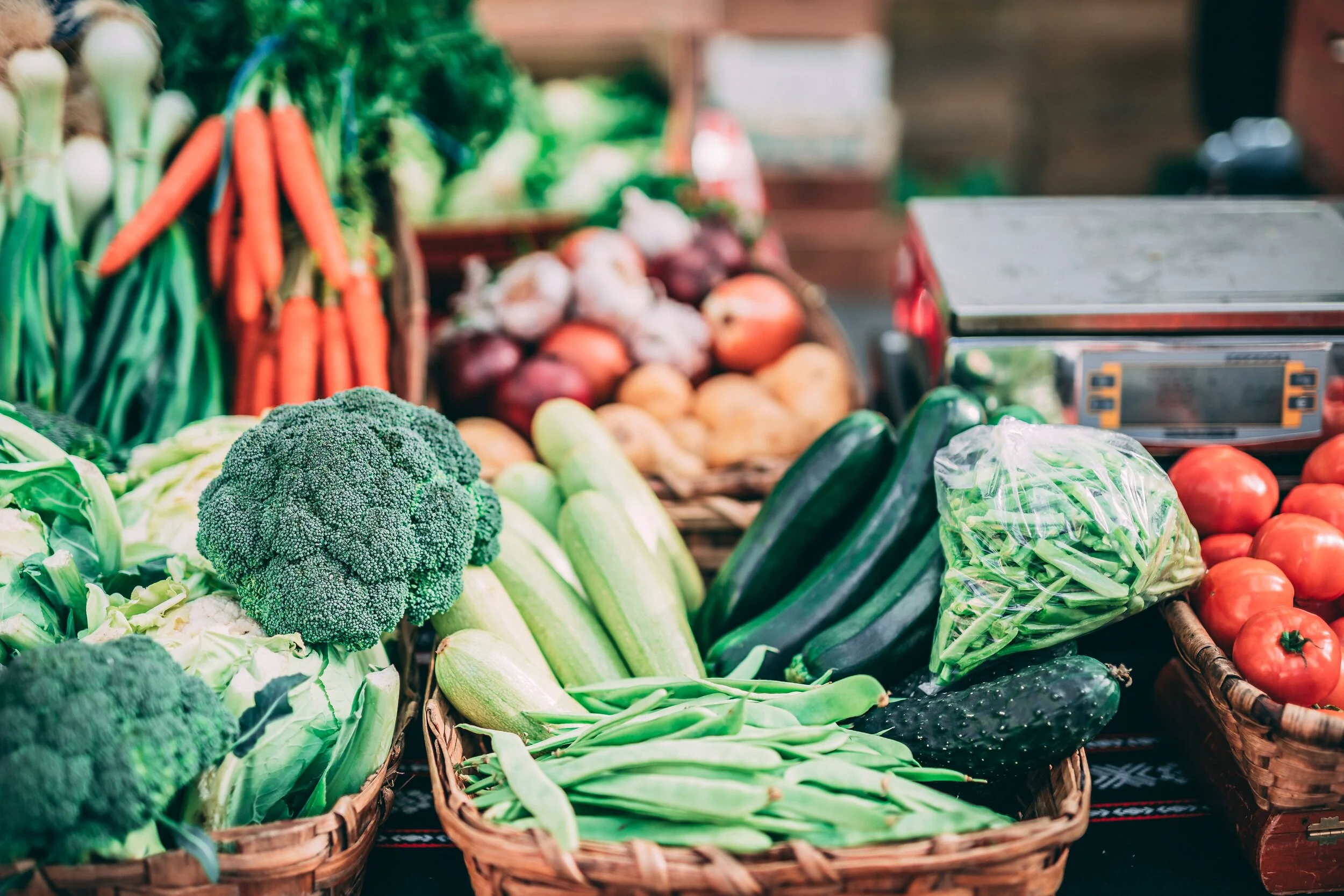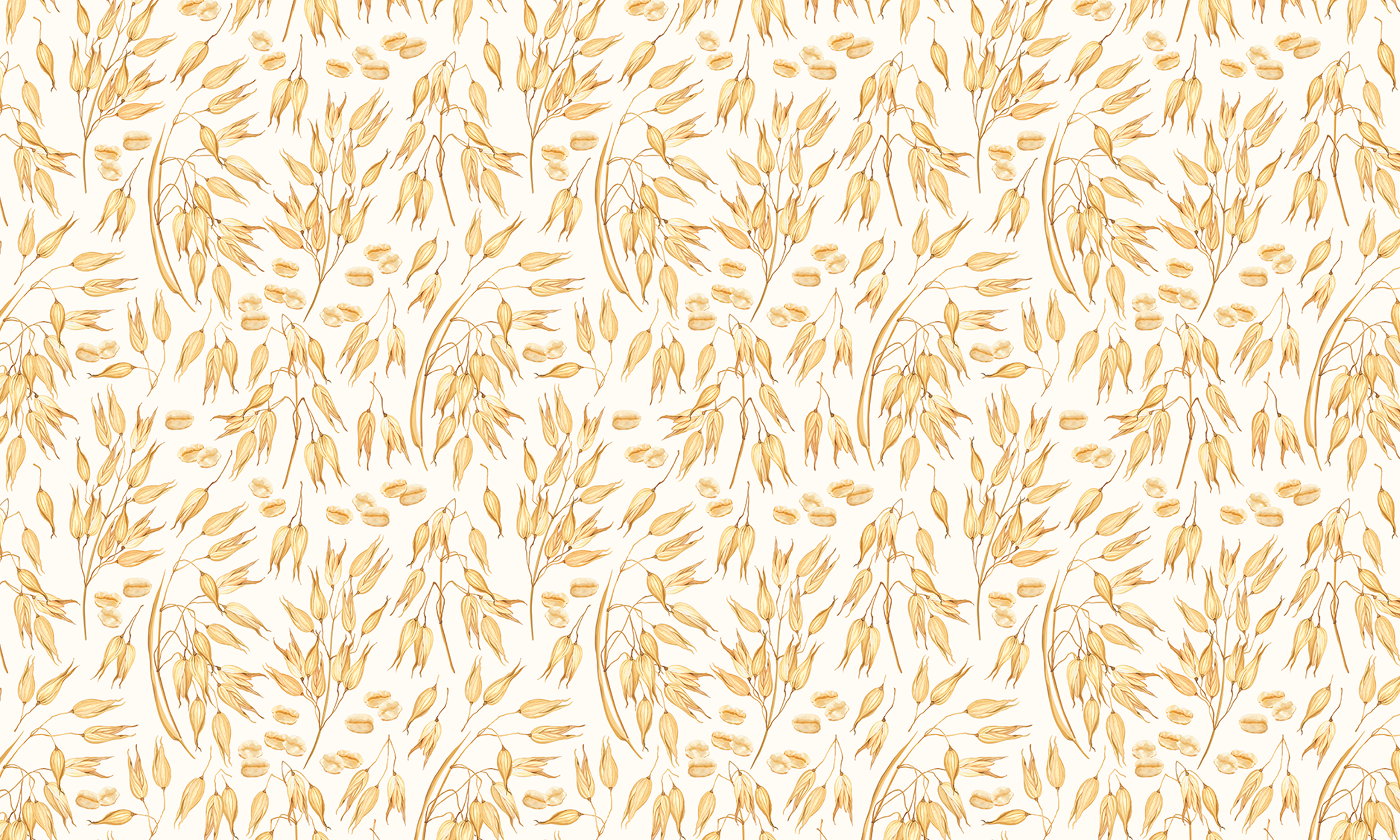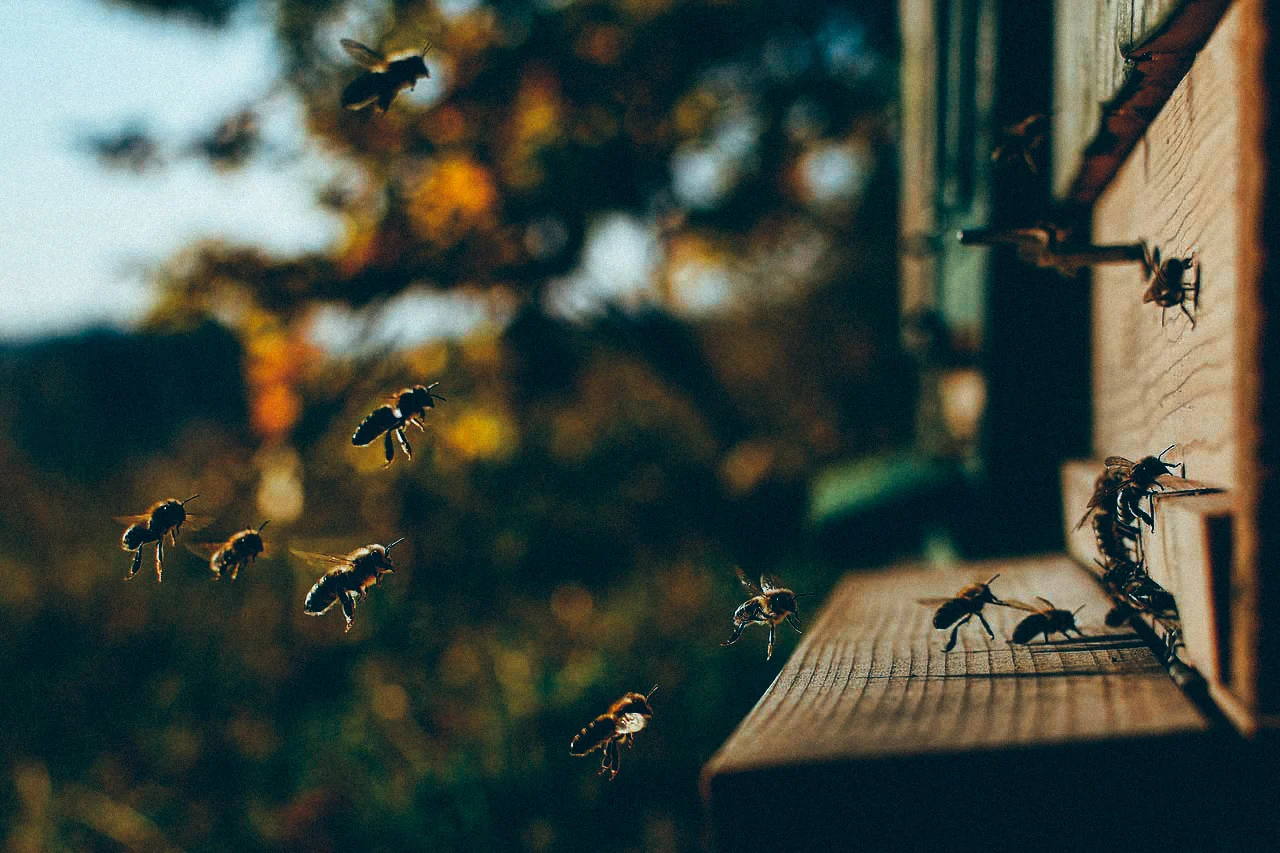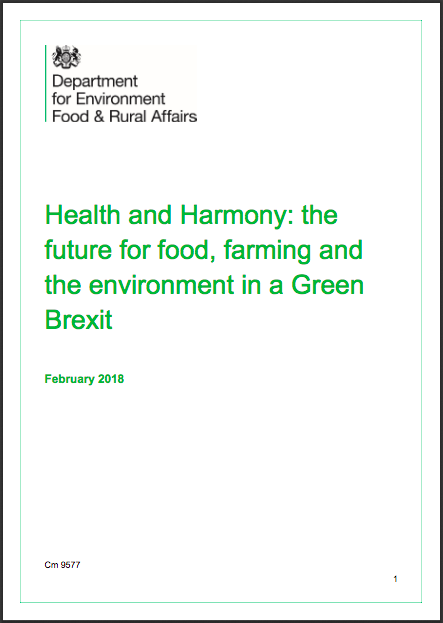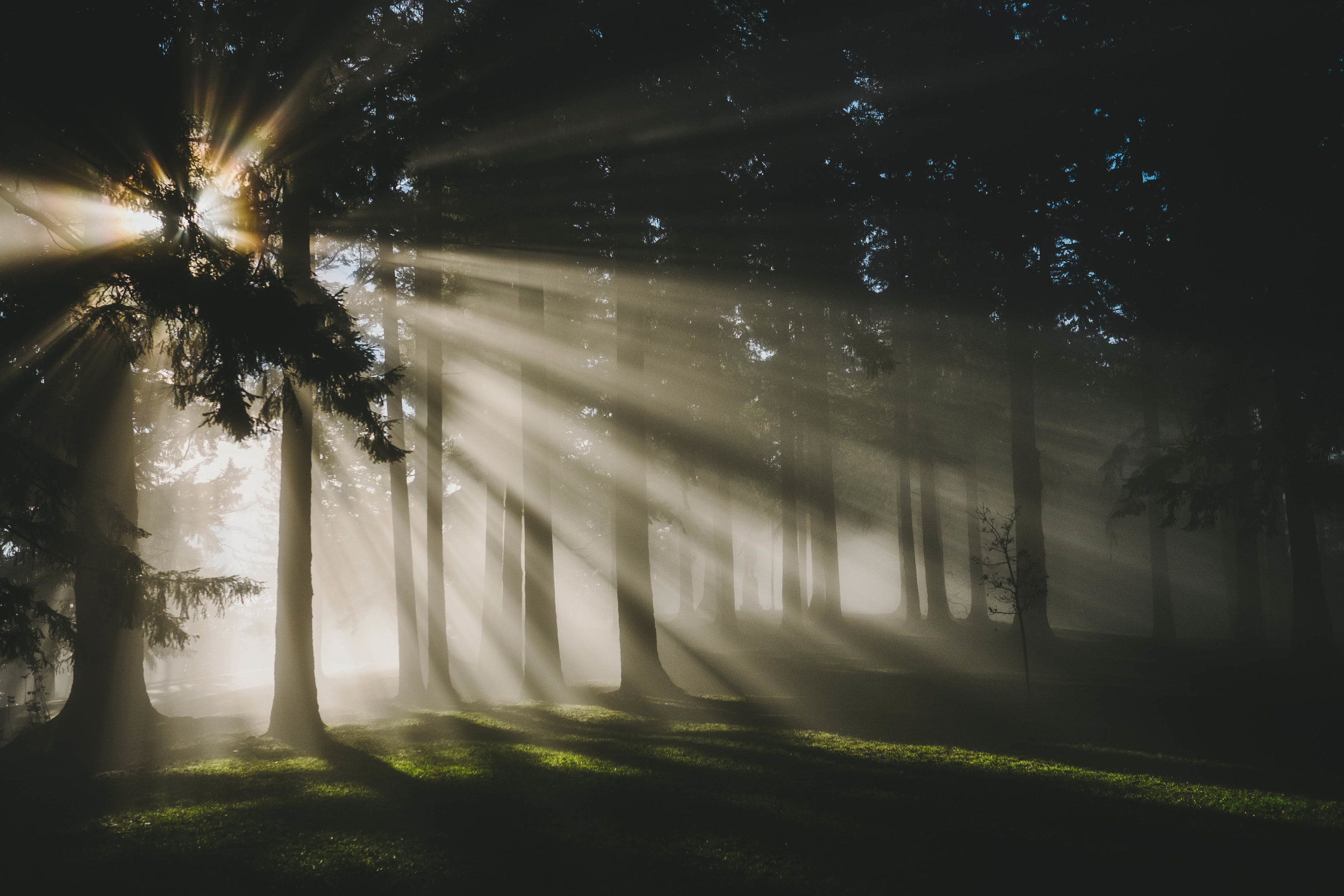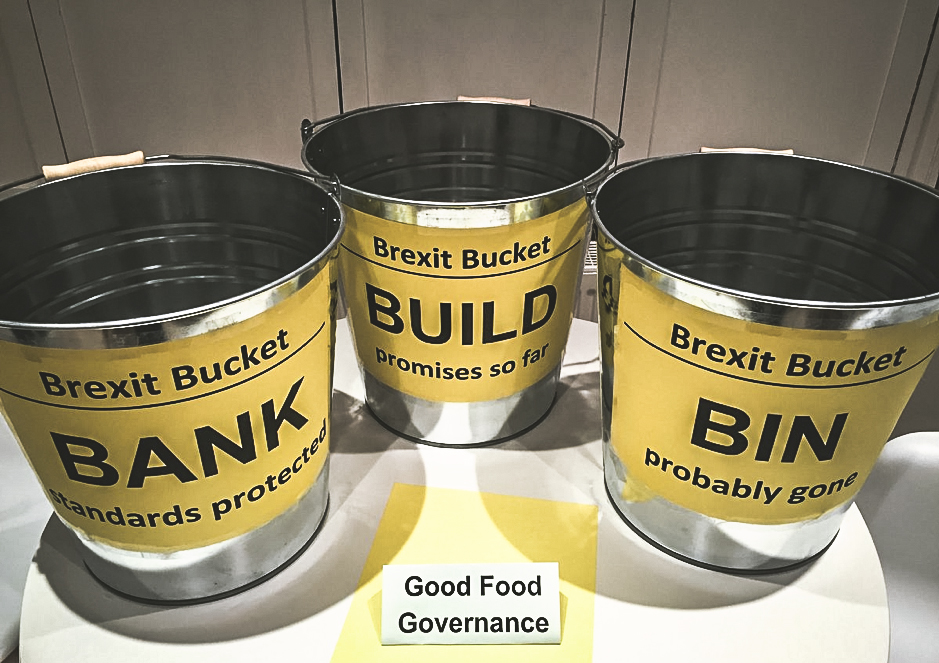For me, Cumbria in summer comes with the memory of being with my dad and my two younger brothers huddling from the rain. I can’t remember why or where that was, but it has with it, a feeling of adventure. I had not been back since my childhood holidays, but the RSA offered me the chance to return.
The mission was to learn the dynamics and values of a complex region, their impact on the landscape, and what does Brexit mean for Cumbrians? .. and all achieved whilst cycling.
An illustrative map of a very approximate route (although, I caught the train from Penrith to Barrow.... ssh!).
Here, - to use a quote from the TV show Game of Thrones - “The North Remembers”. Along the journey, I was told how many folk remember a world where farmers and foresters were inherently valued by the wider society for the services that they give. It was a place where local markets thrived and the food was locally sourced, clean and affordable. Families could live in the villages that they (and the generations before them) grew up in. The youth were the lifeblood of the community and schools were full. The general consensus was that folk cared and the sense of human-connection was prevalent; all consequences from the milk of human kindness.
This was an adventure that had heart and soul.
A Tension Between Traditionalism and Development
My journey began with the Lake District and a world washed with cultural nostalgia; tea shops, cottages on biscuit tins, and me cycling across rolling hills - to quote Wordsworth - as lonely as a cloud.
On Tuesday morning, the interviewer for BBC Cumbria posed me a question before going on air, “In the world of fake news, I gather that you are here to understand the difference between perception and reality, within Cumbria, farming and Brexit?” Truly an existential question, but a seed of curiosity was sown.
The interview with BBC Cumbria, stood alongside Lois Mansfield of Uni. of Cumbria.
Numerous people cited to me that “Cumbria is like a doughnut, in the middle is the lake district”. Each would agree that what priorities occur on the inside aren’t the same as on the outside.
My trip to Barrow in Furness on the final day informed me that there are many people who live only 15 miles away, who will never step foot inside the park within their lifetime. But on that Monday, as I was still forming my own perspective, I met with Liam McAlesse at the Lake District National Park Authority who first proposed that view. “In Cumbria, there are perceptions from certain people that the Lake District isn’t for them, it has an invisible wall, they see it being for ‘other people’, we are working on trying to bring that wall down”.
The reality, the park attracts 19m people a year that visit an area the size of Birmingham for recreational and aesthetic enjoyment on top of the local 40,000 residents. In 2017, the park became a certified UNESCO World Heritage Site of Cultural Landscape… and, it is those two words - cultural landscape – that paint a sense of ambiguity, one that connotates the underlying tensions in the region.
The term ‘Cultural Landscape’ is vague and how it is understood depends on the perceiver. Some relate it based on the recognition of how Wordsworth, Coleridge and Beatrix Potter once idolised the landscape with a brush of vivid romanticism or beautiful and charismatic childhood adventures. This is culture and therefore, ephemeral. However, what is in front of us, is physical landscape, specifically a ‘Managed Landscape’ of forests, farms, and watercourses.
Here, at the root of it, we are talking about people’s cultural and conditioned belief systems – how they subjectively look at the landscape and how they place their own values upon it.
The ambition of the Lake District National Park Authority is to turn Cumbria into the ‘Rocky Mountains of the UK’ – a vibrant place to live and work. Farming is a part of the plan but the bigger picture is one of rural development. This frozen nostalgia of how the lakes are perceived is not an economically viable and sustainable model for the future. There needs to be a local economy built on creativity, hubs of entrepreneurs providing social capital through society working together. “Brexit is an opportunity for policy to move beyond a sense of stagnation and into the real rural debate, creating places where people want to stay to live and work”.
Concern for the youth drain was a repeating pattern within many of the conversations that I had. The exodus of youth and what went with it, talent, was apparent on Kendal College’s wall where a sign read “Stay Local, Go Further”. Photographer and writer duo, Rob and Harriet Fraser gave me a wonderful introduction to sheep farming but there was an angle that I found specifically touching. In Harriet’s Poem ‘Michael’, it focuses on a well-respected young local farmer who left for Derbyshire to run his own farm as the opportunity didn’t exist for him in Cumbria. Harriet once publicly recited it and unknowingly, his father stood in the audience, tearful. The Poem ends with the following two stanzas;
These walls, land’s bones borrowed and stitched by man,
May stand, unchanged, for a century. But on a farm this size
There are always gaps, forced by unforgiving rains and snow.
Today two hundred stones are fetched, fitted, back in place,
Two gaps, three men, one rhythm
Now the valley has a gap a man gone, a rare breed.
There’s that man, says Anthony, raising four fingers of a weather-worn hand,
That many young ones in Cumbria who could take over a farm.
But now he’s gone. How will you find another like that?
Alison Park of Low Sizergh Barn highlighted an additional angle – an ageing society. Areas, such as Kendal, has a sincere issue with the cost of housing. Many older folks are spending their retirement there, and rightly so, it is beautiful. But this means housing is being used by people who are not necessarily actively working in the local society. This has had an impact on community life. Young people can no longer afford homes and schools have had to shut due to a lack of children.
When I met Kelsey Thompson of Morecambe Bay Oyster Company, he told me a story of how the French – the largest consumers of oysters in the world - had lost their oyster industry to a disease. It took over ten years for it to return, the consequence is that a generation in France no longer eat oysters as they weren’t an option growing up. If living in rural areas such as the lakes is no longer an option for young people, what does this do to their connection to the place? Will they stay and invest their talents into the National Park Authority’s vision of the future?
Oysters from Morecambe Bay
Farming – Go Big or Diversify
After foot and mouth in 2001, Cumbria didn’t go back to the way it was before. On my first day, I followed in the footsteps of Lord Curry, visiting Low Sizergh Barn. The aim of his inquiry was to ensure that foot and mouth never happened again.
Photographer, Rob Fraser enlightened me to the extent of suffering that occurred during that time. He detailed how after the culling, a mindset had changed. He spoke of one farmer he knew, who walked around with a gun and shot each of his prize-winning Herdwick sheep because “it wasn’t right that it should be done by a stranger”.
And that is the crux of it, an upland sheep farmer’s sole existence is one built on love for the sheep – like a parent for the good of their child. As Isaac Benson, a National Trust Tenancy Farmer, said: “For why else would you do it?”. All the farmers that I met along the journey have invested their entire lives into being an upland hill farmer. Isaac continued “you have to in order make anything out it yet you leave yourself vulnerable”.
Rob and Harriet Fraser gave me with a vivid introduction to upland hill farming upon the commons, what it means to be ‘heafed’, and they painted a picture of lambing time; where all the sheep are brought down from the hills, known as ‘the Gathering’.
These sheep have been bred over hundreds of years to be hardy and territorial, safely roaming the commons unfenced and unmanned. Each sheep has their preferred patch that they graze (their ‘heaf’) and this knowledge is passed down through to their lambs. At the Gathering, all the farmers, young and old, their dogs and quadbikes, combe the hills to bring down each one. “Farmers, sheep and dogs walk all over the hills in synchronicity, flowing down the valleys like water”, recited Harriet poetically.
A cow from one of Low Sizergh Barn's mixed-breed herd.
But the future of upland farming looks difficult. The demand for lamb has plummeted, wool is considered a by-product with dwindling demand, cheap imports are killing business, farm tenancies are often questionable, environmental stewardship schemes aren’t being designed well enough, and the major concern; with Brexit, Government support looks set to go. Each farmer that I met, deftly articulated why this is a travesty.
It has become a common theme that in order to survive, farming, in general, has two options – go big or diversify. The farmers that I met all have various additional forms of income, be it a bed and breakfast, delivering meat boxes, or juggling second jobs.
Low Sizergh Barn, on the outskirts of Kendal, have a thriving farm shop that sells a diverse range of local, direct-to-market, goods and products. There is a vending machine outside that sells organic Raw Milk through recyclable glass bottles. It has a tea shop that overlooks the cows being milked – a massive pull for young families and tourists who want to see a working farm. John, the supposedly retired father of the family farm, says that they still receive calls asking “Do you milk the cows on weekends?” .. “That’s the level we’re up against” he added.
The alternative to diversification is expansion into ranch-style farms to spread the cost of overheads and infrastructure over a larger production. The consequences mean that the backbone of UK farming, the smaller, family farms find it more difficult to compete, along with the claims of negative animal welfare and environmental degradation. Richard from Low Sizergh Barn stated how “others are expanding to spread to the cost over more and more milk. Spreading the costs per litre is a double-edged sword; prices go up and down even if you milk more cows. If you have huge numbers of litres and the cost per price is below the price of production you lose even more money”.
Monbiot vs No Change
Towards the Forestry Commission by Bassenthwaite Lake
John Gorst of the Ennerdale Project and United Utilities said plainly, “The hills are knackered”. Ecologically speaking, there is a lot of work to be done. In the Lake District’s own UNESCO application, on page 535 it states that 75% of the park’s sites of environmental interest are in an unfavourable (but recovering or worse) condition – and realistically, everyone I met admits that the park ought to be in a better ecological state.
The term “sheepwrecked hills” was coined by George Monbiot in his writings that depict his views of the “biodiversity desert” that is the upland hills. Throughout my journey his name occurred prolifically and the feelings attributed to him came with either esteemed praise or a spit on the floor. He cuts a divisive figure.
John Rowland, a sheep farmer from Low Beckside Farm in Mungrisdale, recalled how it began, “Monbiot truly hurt a lot of people. We witnessed a case of dramatic flooding in 2015, it was a record amount of water. People lost a lot and they were hurting, Monbiot found the situation to his advantage and pressed his agenda without any sensitivity... Journalists just want to sell”.
In short, Monbiot and the re-wilding group wish for sheep to be taken off the landscape and to allow the hills to return to a 'natural state’. There is merit in the idea at a conceptual level, but pragmatically this involves dealing with people who don’t want that to happen, and their resistance has its dignity.
I met with Dr Lois Mansfield of the University of Cumbria along with Kate Rawles, author, adventurer and campaigner. Lois gave a vivid picture; “There is a vociferous aura around re-wilding. There are some within the movement who understand the complexities, yet the ones who speak the loudest are extremists who drown out the realists… Farming communities are turning inward, they are feeling under attack by environmentalists”. Kate added, “There was a conversation between the tribes of ecology and sheep before Brexit. Trying to work together, but now, Brexit has changed their focuses”.
The view towards Braithwaite from High Snab Farm
Tom Lorains, a sheep farmer of High Snab Farm, suggested that those who work at ‘vocalising extremism’ should instead work within the fold. To understand the complexities and make change occur within the institutions and systems that they easily criticise. This provides a constructive means to achieve their outcome without tearing apart society. Each of the sheep farmers I met agreed that biodiversity has a huge role to play in the quality of the uplands.
Kate Rawles, explained that natural processes are vital for life to thrive: “Biodiversity is a necessity. We are currently creating islands although everything needs to be connected. We need wildlife corridors across landscapes”.
Kate asked me the rhetorical questions that both sides are grappling to understand; “What is sheep farming for if no one is eating the meat? Or using the wool? and What are the subsidies paying for? If they were to go, what else could that land be used for?”
Forestry on a hillside by Thirlmere
If the subsidies were to go, what would happen? This is where the two camps differ. Rewilding is leveraging itself to the present opportunity; giving an argument for a transformative change – an economic increase through timber (which the UK has a large growing demand for), watercourse management (creating cleaner water and resilience), and ecotourism. The farmers are open to change through adapting to environmental management schemes. However, if the ‘vociferousness’ continues they will adhere either to no change, or, as many farmers stated, recessive change through restocking, and with it, the loss of previous conservation work.
Gareth Browning of the Wild Ennerdale Project and the Forestry Commission believes that the markets aren’t there anymore for them to do that. “The economics just simply doesn’t add up. For them to exist, they need to be subsidised”. Gareth's work, considers the landscape as a multitude of interconnected parts that work for the whole. Letting nature take its own course is thoroughly beneficial. He sees the future with the farmer integrated into a wider landscape scale plan. The farmer would be without the mindset of sole possession, but with a mindset of being contracted to offer a particular service. Here, there could be an argument of financial support, not from subsidies of production but through a form of ‘income support’; an honest case for basic income that is designed for a liveable salary comparative to the task at hand.
This view is felt by the farming community as a ‘clearing’. Gareth agrees that “the loss of sheep farmers is a socially jarring thing”. However, he goes on to say that “it is no way representative of the coal mines or the shipyards … only 3% of the local community are affected”. Needless to say, the farming community is vehemently opposed.
Is this what we want our society to be about? Two polarised camps at each other? Adam Day of The Farmer Network, says simply; “it has to stop, we are both on the same side”.
A ravine near Grasmere
Isaac agrees, “The answer is a balanced landscape. We need to combine practical reality with the foundation of a solid environment. If family farms disappear, it will be the end of conservation and we will be in a food crisis. In society, the Farmer is considered a land agent, but one farmer can provide up to 40 services.
Having to renew farms once they are lost, has a cost that the public purse cannot afford. We have to get this one right, otherwise, it’ll be beyond disrepair …There needs to be food as our population is growing – we’re going to need farmers. This 'us vs them' has to stop. Farmers are the best hands to lead us into the future. They are strong enough to carry the burden of many demands. But we need a platform where we are believed in and can continue to do so for the future generations”.
Challenging Identity
A combination of top-down approaches and ‘societal suspicion’ from pressure groups has lowered the farmer’s esteem and stock. Isaac gave an honest depiction of his reality that shone a light upon something deeper. Perhaps the root of the issue, and one not being directly spoken about. “I have to comply with the vision of Defra and the National Trust. In order to stay profitable, I have to forfeit my identity”.
He adds, “We have identified that sheep don’t belong here, do we?”.
It is easy for you and me to look at our work with a sense of separation. Even if we love it, we leave it in the evening. And here’s the crux; upland sheep farming isn’t a vocation, it is an identity.
Upland hill farmers have spent all their lives ‘bide to the landscape’. Through repeating tales of their forefathers, spotting a rare bird in the sky on a quiet mundane morning, socialising at busy auctions, drenched wet through pulling out a lamb to save the ewe’s life – there is a deep connection, one built over time and with love. Through a life lived in this way, they have forged their identity, this is their reason for existing, the ‘why’ in their being.
If you say, ‘take the sheep of the hills’, you are inadvertently saying ‘you get off the hills’, and that becomes personal. If you say, ‘Sheep are unwanted’, you are saying that ‘they are unwanted’, and that’s hurtful. If you say ‘Sheep shouldn’t exist’, you are saying that ‘they shouldn’t exist’, and that is de-humanising.
These men and women, throughout their lives, have been free to live amongst the landscape investing every amount of energy, love and soul into a way of life that gives them meaning. Now, I ask, how would this generation of farmers cope with living in a ‘two-up, two-down’ in an urban area, outside the Lakes, commuting in to do contracted work? They will be muscled out of their local communities due to the expensive housing market propped up by retirees and tourism. For me, this has an ethical and humanitarian consequence.
This same sense of identification of self is also true to the wider community whose immediate landscape has shaped their upbringing, and this is the reason for the Lake District being a ‘Cultural Landscape’ in the eyes of world heritage, it lives in the minds of those who live and visit the region. And it is true of the Pro-Environment Groups that define themselves by their identity; the identity of virtues. They reflect upon themselves ‘as good’ by the deeds that they do and the values that they uphold. Yes, it is important to have virtues and strive for a greater sense of societal enlightenment, but should it come at the expense of tolerance and pragmatism?
Looking back over The Lakes at Mungrisdale whilst heading towards Penrith
Stepping Out and Seeing the Big Picture
On Friday, I headed for the west coast. The last day of my visit took me to the post-industrial town of Barrow-in-Furness, a town with a nuclear submarine that gives the UK access to the highest table of influence in the political world. With more in common to neighbouring Lancashire than Cumbria, Barrow is the counterweight to the Lake District’s public image. Instead of being exhibited, it is overlooked, either by design or by circumstance.
You ask people around the town what do they think of it? And you’ll get, “It’s a bit shit, but we like it like that”, said with a sense of in-genuine pride.
I met with Maddi Nicholson and Stuart Bastik, directors of ArtGene who introduced me to the town; “It started in the 80s when 10,000 people were laid off in the closure of the shipyard all from the labouring class. There are now 3 generations of unemployed, and this has created an underclass”.
There is a sense of unworthiness. Without the ability to move circumstances, people find other methods to escape. Barrow has become one of the UK’s most prolific areas for deaths via drug overdose. The majority of it occurs on a housing estate literally over the road from BAEs Devonshire Dock Hall, built as the tallest monument in Cumbria. Here, there is a dynamic tension between power and pressure.
Art Gene's satire preserve
Maddi described how this town has faced a lot; “The people here have had to deal with the closure of an industry that once gave them a job for life. To keep the job, they adhered to the rules, but then the day came when that industry went and what replaced it no longer valued its place in the community”.
Although Barrow faces a lot of deprivation, it is in the top 1% nationally for landscape and nature (data from the RSA’s Heritage Index). Yes, there are economic differences, yet there are also assets of rich heritage and cultural history, which can be the driver for transformational wellbeing. But the community is completely unconnected to it, well, yet..
Art Gene is working at the frontiers of community engagement through a number of projects, some creative and some connective, to align the community with its true heritage. “Art Gene embraces the positives of the duality in people and place. We are revisioning social, urban, and natural environments. We are engaged in defining futures”.
The word future is very poignant. Barrow in Furness voted to Leave the EU by a large majority. Later in the day, I met with John Woodcock MP who painted a straight picture on this topic; “Constituents have a lack a faith in the ‘establishment’ and the system. They’ve been left behind, things are getting worse. They’ve been told how to do things by ‘experts’, and consequently have lost trust. It is in their greater economic interest to remain, but here, people reject that”.
The disconnect is increasing. It seems the constituents feel they have no agency, no one is listening and all the while they see their world diminishing in value. John takes it further “In the 80’s we went through a period of greed that still echoes; back then, community didn’t matter, kindness didn’t matter”.
Lucas from the bakery Peace and Loaf
That notion sent me back to a conversation that I had with Kate Rawles; “We need to go back to basics. Simply; what do we value? As a society, our values are inadequate, western farming is driven by profit, it is considered an industry – to be industrious. Arguably, it should be primarily nutrition led along with positive impacts on the environment, welfare standards and fair jobs.”
A sense of disconnect was a reoccurring theme throughout my journey; a disconnect from each other and our environment. Earlier in the week, whilst I was writing this report in the Drayton Hall pub in Penrith (dare I say, supping a beautiful golden ale), I couldn't help but overhear a neighbouring conversation, “values from the future, need to be brought to the present”, I looked over, as a man took a glug from a half-swilled pint glass.
Maddi, Stuart and I went to the beach on the north of Walney Island to soak up some of that week’s heatwave. It was a breath-taking sight of beauty, white sands abundant, contrasted by the dark mountains rolling out into the background, eventually merging into the sky.
Stuart explains that “local people, when empowered, are the drivers of meaningful change. There was a chap who did all the leg work in getting Walney Island recognised as an official nature reserve. He studied all the birds and accounted for them before dawn and after dusk. Once it was under the auspices of the Wildlife Trust they employed a ranger - who had no previous knowledge of the area - to deliver a strategy based on where the money is. The local knowledge was displaced, with it the true value”.
Near Morecambe Bay Oysters, a mass of wind turbines stretching out to beyond the coast of Walney Island. Apparently, it has boosted the local marine life, which has developed into an artificial reef.
Maddi continues with a story about an old rickety hut that was once existed along this beach. “A lady sold ice creams out of it, a place that all the locals new and she knew most of them. Then, when the National Trust took over the site, they replaced the hut with an iron clad information box, the lady has gone and the area surrounding it has been landscaped in a way that can be found at all National Trust beaches”. Maddi points to the floor stating how they have used plastic imitations of wooden sleepers to create a footpath.
“Generic interpretations have taken over local distinctiveness”. She sighed.
In that sentence, I stopped, and I saw.
Earlier in the week, I met Dan Stamper, Senior Lecturer of Newton Rigg College, who has the important task of keeping farming an attractive option for young people. He told me that he teaches his students that “difference is a strength, it adds another form of brilliance to the world”.
In areas of our lives, the rich diversity of everyday life has dulled into uniformity; a ‘one size fits all’ top down approach. As opposed to the bottom up, organic process of life. The interrelationships of complexity, difference and diversity are what makes communities and ecosystems resilient and thriving.
As I continue to write, the bartender at the pub in Penrith pulls me from my flow and from the bar, asks me what is it I am working on. I say to her that I am trying to understand the difference between perception and reality, she says “for what it’s worth, what is real to me – as she softly held a small bunch of fragile roses from yesterday’s wedding - it’s the smell of these, a childhood memory, you know – like, when an apple wholeheartedly tastes like an apple – you see it, touch it, feel it; that’s what’s real”.
In Barrow, I walked into the BBC’s “Best Food and Farming Shop of 2018”. Peace and Loaf’s story is one of optimism. Run by two resolute individuals, they have shown the world that circumstance is merely a matter of perception. The reality for them is creating bread that people love. Due to the inflated rates (the council says ‘competitive’), Peace and Loaf run out of a shop that is only big enough to sell international calling sim-cards. However, here is an organisation selling the UK’s best sourdough loaves in one of the most poverty-stricken areas of the UK and from which, they crowdfunded £9,000 from a community with limited resources. The folk here saw two of their own just doing it, giving it a go. With that belief came engagement, support, and pride. Upon walking up to the entrance, I was instantly struck with that familiar, fruity, toasty, almost sweet scent of fresh bread that lingers heavily in the air and at that moment, you stop, you savour, you are present. That was real.
Earlier that week, sheep farmer, Tom Lorains welcomed me into his home. Margins are tight on the edge of a hill, yet here they had open arms for a stranger; Tom and his wife gave me lunch. Caroline remembered that I was vegetarian and there I was with a man whose job it is to produce lamb. We respectfully spoke at length and we ate as friends. That was real.
When I met Isaac, upon meeting I offered my hand and like all farmers, a shovel-sized, rough hand worn from years of graft clasped around mine and he looked me deadpan in the eye. We said nothing for a second, and yet I understood. For 20 minutes, he opened up to me about his fears for his livelihood, his community, and his children. Towards the end, I honestly had to turn my head away. I couldn’t face a man with that much strength and that much to lose. In a moment of personal openness, an eye teared up. I felt the frequency of his pain, the heavy load he carries.. That was real.
Before arriving in Cumbria, I thought about my childhood holidays in the Lake District. But now, I truly saw the county a new. As I was leaving Barrow-in-Furness, with my bike ready to go, Stuart shook my hand, he said with reverence “come back again”. I probably will, but it’ll be that old Gypsy reality; you go to a place and when you return, it’ll be different. Whether that’s my perception of it or the reality of today’s world? Who knows, it’s all one and the same.
The beach to the north of Walney Island, looking over the Duddon Channel. With the old iron works slag heap to the right and towards the National Park in the distance.










